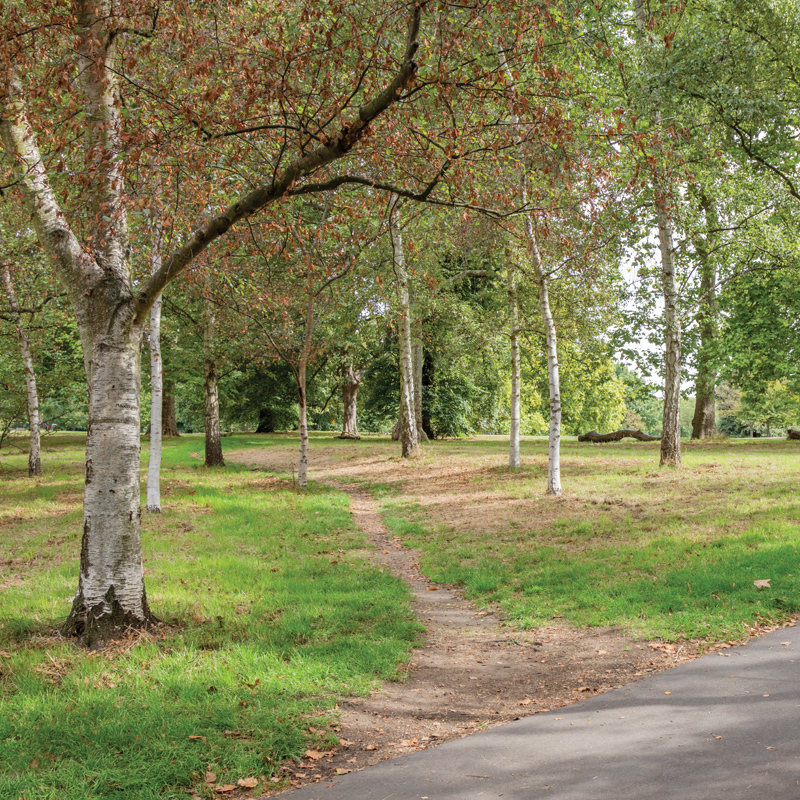de·sire linez | /di-ˈzī(-ə)r ˈlaɪnz/

Whilst walking through a park, most of us will have strayed from the prescribed path to take a shortcut across the grass. These repeated acts of minor rebellion create desire lines or desire paths. Studies have shown these informal tracks can form easily, taking as little as 15 passages to establish. Rural desire lines are also known as game trails, social trails, bootleg trails, and pirate’s paths. They have been etched into virtually every landscape on Earth.
Relative levels of erosion are a good indicator of how popular a desire line is, providing shrewd city planners with valuable information about how to better plan future paths. In the United States, a number of university grounds were initially left unpaved until the natural pathways the students and teachers created revealed themselves. Finnish park planners have studied people’s tracks left in fresh snow, noting the differences with the temporarily hidden official paths.
Urban desire lines are not always formed by dissent and may simply have evolved as the easiest route between two points before there was any development. Edinburgh’s Cowgate and New York’s Broadway are both believed to have originated as desire lines before they were developed as city thoroughfares.
Some desire lines are more literal than others. If you find yourself in a seemingly nonsensical maze of pathways in an urban park or woodland, you may have inadvertently stumbled upon a popular nocturnal cruising ground.
Introduction Aeolian Alpenglow Apricity Asperous
Benthos Crepuscular Crispate Crown shyness
Desire lines Dreich Endragoned Edgelands
Frondescence Fumarole Gluggaveður Gossamer
Karst Komorebi Lawrence Long acre
Machair Monkey’s wedding Moonglade
Psithurism Quartz Rakuyou Roaring forties
Snag Soft estate Specular, diffuse and pellucid
Spoondrift Steam fog Swash zone Sylvan